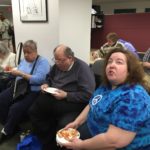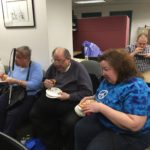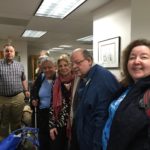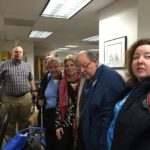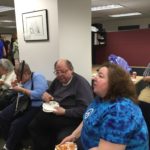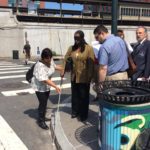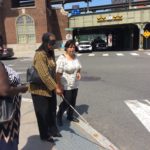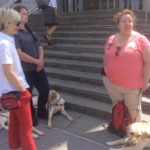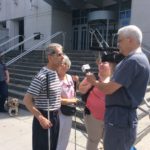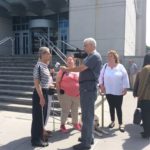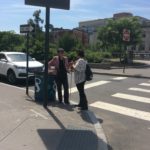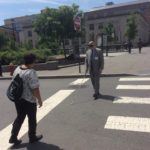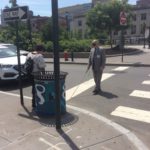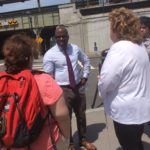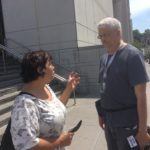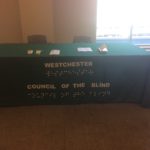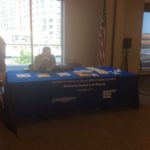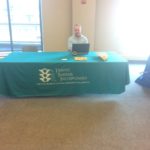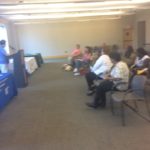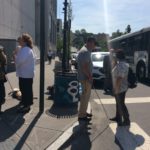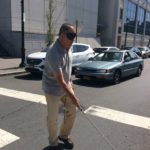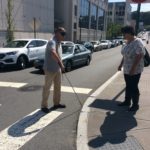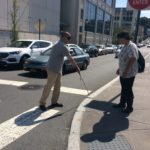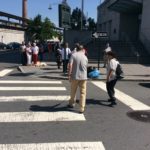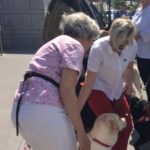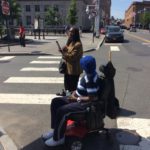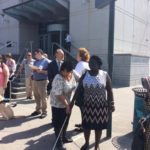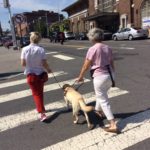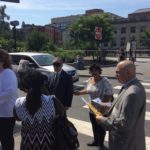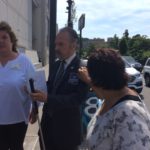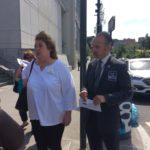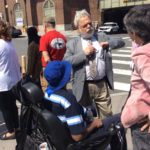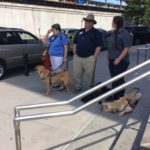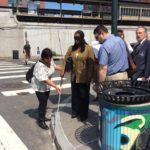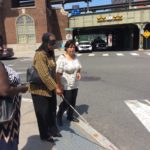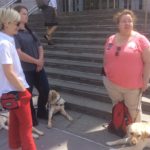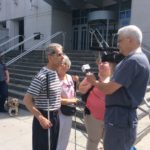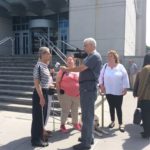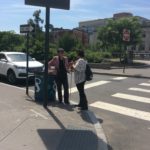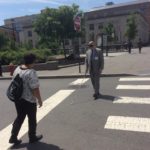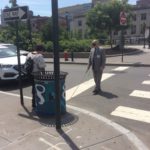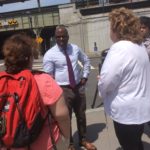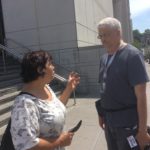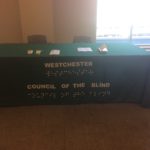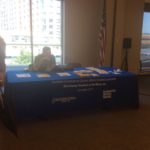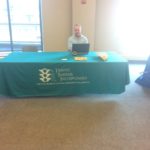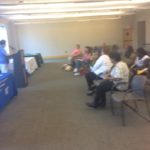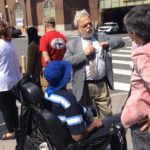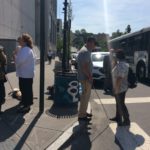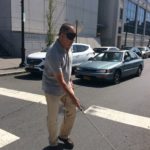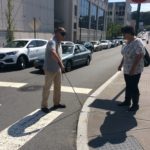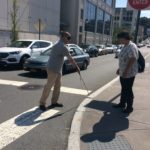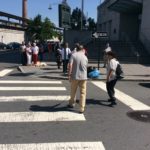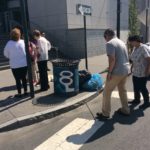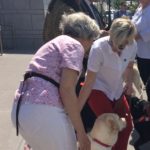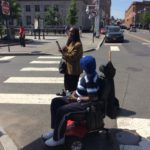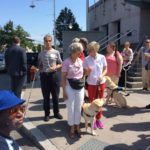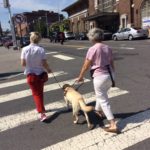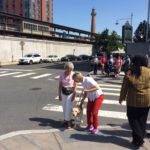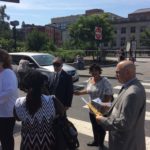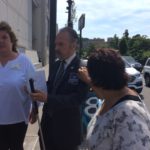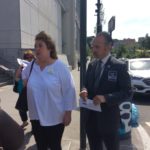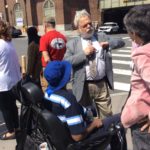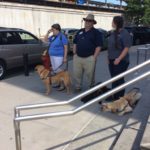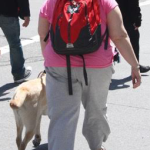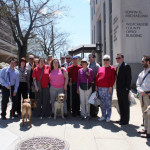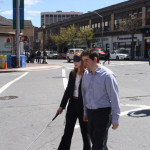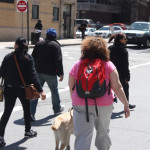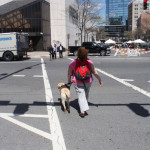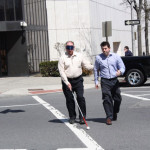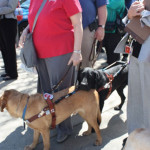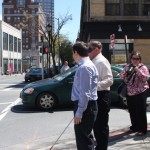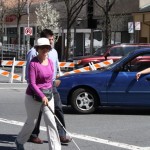Category: Uncategorized
Keeping It Moving
June 1, 2016 – APSC Keeping It Moving: accessible and safe streets for Westchester, Yonkers Riverfront Library
Local Blindness Awareness Group brings Street Crossing Challenge to Yonkers
FOR IMMEDIATE RELEASE
Contact: Annie Chiappetta, President, Westchester Council of the blind (WCBNY) 914-393-6605 president@wcbny.org
Becky Davidson, Vice President, WCBNY 914-243-2210 vicepresident@wcbny.org
Local Blindness Awareness Group brings Street Crossing Challenge to Yonkers
1 June {Yonkers, N.Y.}- The Accessible Pedestrian Signal Coalition of Westchester is hosting its second annual street crossing event on June 1, to show support for Yonkers and its recognition of making streets safer and more accessible to people with disabilities, the APSC of Westchester will be handing out information inside the Riverfront library located at 1 Larkin Plaza from 10 a.m. to 1 p.m. A traffic systems equipment representative will also be present for demonstrations.
Additionally, an outdoor activity, called “The Blindfold Challenge”, will seek volunteers who are sighted to cross a street nearby using a white cane while also being accompanied by a certified orientation and mobility instructor for the blind. The purpose is to let people feel what it is like to navigate a street crossing without the benefit of vision. Moreover, this helps the community understand how important installing APS signals are for people with disabilities to travel safely and independently in their neighborhood.
Last year, the event was held in front of the County Office building in White Plains and was a media success.
The coalition was formed in 2014 and includes members from State, County, and local Departments of Transportation, blindness organizations, Independent Living Centers, and municipalities working on increasing installations of APS .
According to Westchester Council of the Blind President, Annie Chiappetta, “APS are devices that use audible sounds to assist blind and deaf blind individuals to locate safe crossings at intersections. Audible Locator beacons help target poles with APS buttons and cross walks. Tactile strips identify curbs and ramps to help cross safely.”
To find out more about APS: go to westchestersafestreets.org/
To find out more about the Westchester Council of the blind, go to:
SUMMER CONCERT & FUNDRAISER
♫ SUMMER CONCERT & FUNDRAISER ♫
Support Westchester Council of the Blind today by making a donation!
Photos from the Safe Crossing Event
Welcome to the Accessible Pedestrian Signal Coalition of Westchester
Accessible Pedestrian Signal Coalition (APSC) Westchester
APSC’s mission:
to work to ensure that blind, visually impaired and deaf-blind individuals have full access to the streets and sidewalks within Westchester County. Our goal is to work closely with other stakeholders interested in pedestrian safety, State legislators, County officials, municipality representatives, and departments to create safe streets for everyone in Westchester.
Accessible Pedestrian Signals
An Accessible Pedestrian Signal or APS is a device usually mounted on a pole near a crosswalk and which gives information about pedestrian signals in nonvisual formats such as audible tones, verbal messages, and vibrating surfaces. The primary purpose of an APS is to let pedestrians with vision or hearing loss know that the WALK signal is on for a particular crosswalk.
Visually impaired pedestrians can locate a well-constructed and properly installed APS by listening for the locator tone, a slow regular tick emitted by the device, as they approach a corner. One activates the APS by pushing the large button. When the WALK signal turns on, this APS button will begin to vibrate for pedestrians who are deaf or hard of hearing, and the device will also emit a clear rapid ticking sound or a spoken message that announces the street name and that the WALK signal is on. The vibration and sound stop when the WALK signal turns off.
For more information on APS or to hear and read more about them, go to:
http://www.passcoalition.org/#maincontent
or for an online resource of best practices for APS, go to:
http://www.apsguide.org/Westchester Council of the Blind of New York’s
A copy of the Pedestrian Safety Handbook is also available online from the American Council of the Blind. To access it, go here: http://acb.org/node/611#main-content
